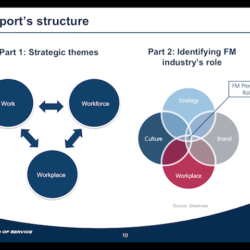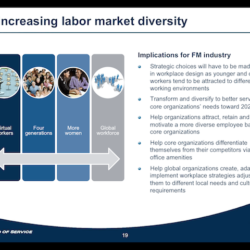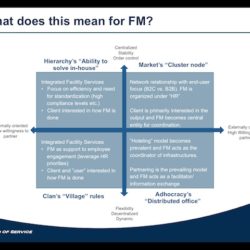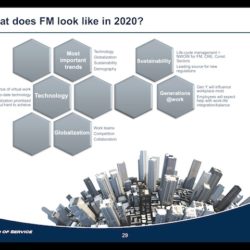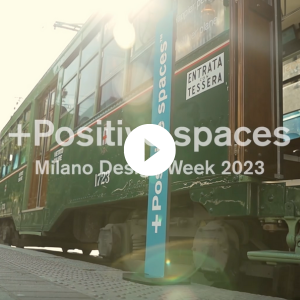Workplace will become an experience, not a facility. What are the new challenges, planning models and workplace strategies developed by the companies and how they will influence the role of Facility Management?
“New Ways of Working – the workplace of the future” is developed by ISS in close cooperation with Copenhagen Institute for Future Studies and IFMA, it is based on in-depth research among more than 600 Facility Management experts.
Peter Ankerstjerne, Head of Marketing & Business Development ISS, explains the workplace towards 2020 will be qualitatively different; and will change the realtion among the three strategic themes Work-Workforce-Workplace and for each of them identifies the FM industry’s role. The Facility Managers have to combat office entropy and operate at the center of the four main drivers for developing: strategy, culture, brand, workplace.
Focusing on the strategy changes and the impact on the role of facility management, the survey explores social topics (sustainability, the increasing labor market diversity, the developing of the urban areas that allow companies to leverage surroundings) and psychological topics (growing need to focus on employee well-being and personalization of the workspace).
“By definition, people are essential to workplaces. Without people, workplaces are simply places. The primary purpose of a workplace is to benefit the people in it, and benefitting the processes between them. Designing smart and cost effective workplaces, which will accommodate more collaboration and increase efficiency, is a major opportunity for most organisations,” said Jeff Gravenhorst, Group CEO, ISS and continued: “There is no doubt that the workplace as we know it is undergoing dramatic change as it will increasingly become a place where people meet, socialize, build relations and have fun. ISS is committed to remain a market leader in developing tools, technologies and solutions for these challenges in collaboration with our customers and partners.”
The survey analyses the boundaries that define traditional and future workplaces and organisations. Increasingly, employees work from the office, home and third workplaces; thanks to Smart Working they work in private offices and open offices as well as from hot desks and touchdown points. Meanwhile, mobile devices are overtaking the laptop and the PC as our primary interfaces to the digital world.
Jeffrey Scott Saunders, Futurist, Senior Executive Advisor, Head of Strategy and Innovation at Copenhagen Institute for Futures Studies said “The accelerating pace of change is driving a wedge between managements’ vision of the workplace and the reality experienced by workers. Most workplaces are not designed to efficiently or effectively evolve as the dynamics of business change. Facility management professionals will have a key role to play in ensuring that workplaces are continuously aligned with core organisations’ changing needs.”

